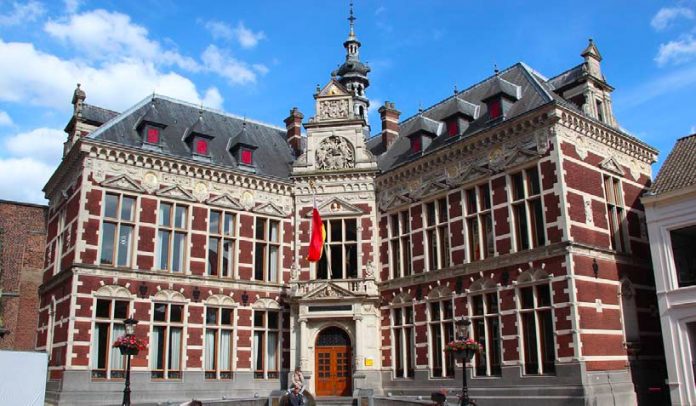The “Anglicisation” of higher education in the Netherlands has caused a “code red crisis.” So begins a petition to the Dutch Parliament, sent in April and signed by 196 prominent academics. The petition goes on to highlight problems created by the “great influx of foreign students” attracted by the growing number of English medium degree courses.
Around 76 per cent of masters’ degree courses nationally are now English-medium, as are 28 per cent of all bachelor degrees. As the number of English medium courses has grown, so has the number of foreign students – there were 22,000 nationwide in 2009, now there are 22,000 from Germany alone, and 122,000 students overall – of which roughly 30,000 are exchange students coming for a single academic year.
The rapid increase in student numbers is putting the infrastructure of some universities under considerable strain, with newly-arrived international students accommodated in temporary ‘tent cities’ at the start of this academic year.
Investigative website De Correspondent describes giant marquees set up to house international students at Rijksuniversiteit Groningen (the National University of Groningen) in August 2018. According to news website Sikkom, emergency international student accommodation in the city also included a disused state school, canal cruise boats and an office complex built from containers.
Newly-arrived ‘internationals’ at universities in Amsterdam and Utrecht have been accommodated in youth hostels and campsites.
Dutch undergraduate students tend to live at home and commute long distances using subsidised student travel cards, so the demand for halls of residence is a recent development. Only the ten campus-based ‘University Colleges’, which offer undergraduate degrees taught entirely in English, guarantee accommodation for all first-year students.
Classroom space is also a problem. The University of Amsterdam erected a giant marquee on a floating platform on a canal to serve as a lecture hall. De Correspondent reports that at the University of Twente in Enschede, freshmen students are sitting in the aisles of crowded lecture halls. There are queues for the University of Utrecht’s library in the run-up to exams.
The way universities are funded is forcing them to compete for foreign students. Dutch and EU students pay €2060 in annual fees, while undergraduates from outside the EU pay up to €20,000. Dutch universities reportedly pay student recruitment agencies around €250 per EU student they recruit, and €800 for a non-EU student.
A large proportion of central government grants to universities – roughly 61 per cent out of a total of €3.9 billion – is spent on financing based on output, in the form of enrolments and graduations.
Overall, there is also less government funding per student – down from €20,000 in 2000 to €15,000 per student in 2017.
With fewer under 25s in the Dutch population, the only way to ensure continued growth is through foreign recruitment. University of Groningen strategy documents seen by De Correspondent identify “cash-cow” courses which are popular with international students, such as international business, European law and psychology.
Many academics question whether the ‘internationalisation’ of higher education has really enriched Dutch students by exposing them to students from other cultures. In the universities of Groningen and Nijmegen, around one in ten students on the English-medium psychology degree course are Dutch. There is widespread concern over whether the quality of English-medium courses can be maintained.
The Anglicisation of Dutch universities extends to their institutional names. What was once Universiteit Maastricht is now officially the University of Maastricht. (By 2013, around half its students were international and half its bachelor degree courses were taught in English.) The institution formerly known as Katholieke Universiteit Brabant in Tilburg is now called Tilburg University.
The petition to Parliament is in response to proposed amendments to the Education Act, which it claims doesn’t do enough to protect the status of Dutch. It also claims that Anglicisation breaches the existing Education Act, which states, that “higher education shall be in principle in Dutch,” and that “higher education shall promote the Dutch language proficiency of Dutch students.”
The academics’ petition continues, “the great influx of foreign students” means less time spent on each student, with reduced proficiency in Dutch in the graduate workforce, adding, “the need for good Dutch language skills in in this age of information and communications technology has not been reduced.”
■ EL Gazette news editor Matt Salusbury is a Dutch national who studied at the Hogeschool Utrecht/University of Applied Sciences Utrecht. The translations from Dutch language sources used in this article are his own.





